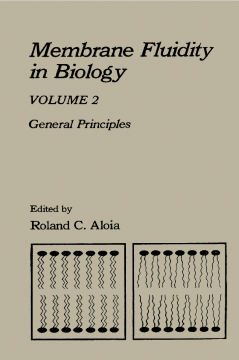
Additional Information
Book Details
Abstract
Membrane Fluidity in Biology, Volume 2: General Principles provides an introduction to the fundamental concepts of membrane fluidity. Key topics discussed include lateral phase separations and phase transitions; hydrophobic and electrostatic effects of membrane lipid-protein interactions; isothermal phase transitions and the effects of ionic factors; and the influence of such components as cholesterol, phospholipids, fatty acids, and cellular water on the parameters of membrane fluidity. Each of these topics is elaborated in detail to provide a unique insight into the factors influencing the thermal molecular motions of membrane components, and hence cellular membrane function. Because such activities as membrane transport, enzyme kinetics, and receptor function are modulated by the physical state of the membrane lipids and proteins, a thorough comprehension of the molecular aspects of membrane fluidity is necessary to evaluate the arcane aspects of membrane-related cellular activities.
This book will be useful to scientists and researchers concerned with the molecular principles of cellular and organelle function. It also provides an appropriate background for Volume 3, Cellular Aspects and Disease Processes, and for subsequent discussion of the relationship of membrane fluidity to environmental parameters, drugs, anesthetics, and other exogenous agents.
